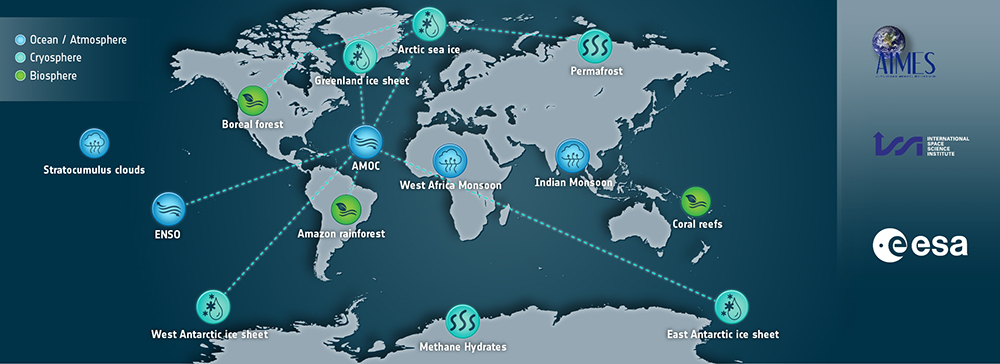Forum Purpose
The two most recent IPCC Special Reports [1],[2], indicate that climate tipping points – abrupt and irreversible changes in the Earth system – are a risk even at lower global average temperatures. Examples include irreversible melting of Greenland and west Antarctica ice sheets, shutdown of the thermohaline ocean circulation in the North Atlantic, and carbon dioxide and methane release from permafrost melting. Some of these regime shifts could be exceeded between 1 and 2 degrees of warming. A particular threat is cascading tipping effects [3], where exceeding a tipping point in one system triggers abrupt and large-scale change in others.
Since the threat of exceeding climate tipping points cannot be ruled out, they pose an existential threat to civilization and an important frontier for scientific effort: we need to reduce the uncertainties around their likelihood as well as the resilience of the Earth system [4]. Efforts must include developing climate models to capture a richer suite of couplings and feedbacks in the Earth system to anticipate changes and prioritize mitigation efforts. We must also improve our observational records of the most sensitive aspects of the climate system and find more efficient ways to use these observations.
With this 2-3 day forum, we aim to focus on Earth observations, clarifying the satellite data requirements to better monitor the climate system’s resilience to tipping points, to constrain models and build on the ESA CCI programme as a foundation for a future abrupt change early warning system [5]. Workshop participants will contribute to a citable report that will provide input to and guide the development of future ESA climate activities.
[1] IPCC. Global Warming of 1.5°C (IPCC, 2018)
[2] IPCC. IPCC Special Report on the Ocean and Cryosphere in a Changing Climate (IPCC, 2019)
[5] National Academy of Sciences. Abrupt Impacts of Climate Change: Anticipating Surprises (2013)
